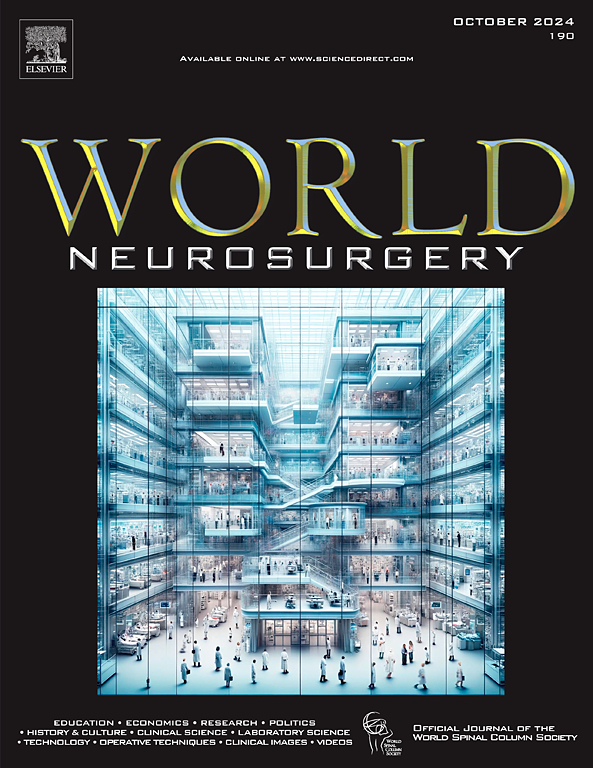Ischemic Stroke May Increase the Risk of Crohn's Disease and Ulcerative Colitis: Evidence from a Bidirectional Mendelian Randomization Study
IF 1.9
4区 医学
Q3 CLINICAL NEUROLOGY
引用次数: 0
Abstract
Background
The bidirectional causal relationship between ischemic stroke (IS) and inflammatory bowel disease (IBD) remains unclear, prompting us to propose a bidirectional Mendelian randomization (MR) study to investigate this relationship further.
Methods
We obtained IS data from the MEGASTROKE consortium and IBD data, including its subtypes ulcerative colitis (UC) and Crohn's disease (CD), from the International Inflammatory Bowel Disease Genetics Consortium. In this study, we utilized IBD and its subtypes as exposure variables and IS as the outcome variable, and vice versa, to explore the bidirectional relationship between them. We used the IBD genetic data from the FinnGen database as replication data to further explore the causality. In this study, we employed the inverse variance weighting method as our primary approach. For sensitivity analyses, we utilized additional methods including MR-Egger regression, weighted median estimation, MR pleiotropy residual sum and outlier (MR-PRESSO), and MR-Robust adjusted profile score. Furthermore, we conducted a random effects meta-analysis to combine the causal relationships derived from both the International Inflammatory Bowel Disease Genetics Consortium and FinnGen datasets, aiming to ascertain more robust causal associations.
Results
The initial phase of the bidirectional MR study revealed a causal relationship between IS and the risk of CD (odds ratio [OR] = 1.56, 95% confidence interval [CI]: 1.20–2.02, P = 0.0008) and UC (OR = 1.33, 95% CI: 1.05–1.69, P = 0.0179), but did not find a causal relationship between IBD as a whole and the risk of IS, nor between IBD subtypes and the risk of IS. During the replication phase, the FinnGen database did not reveal any significant correlation between IS and the risk of IBD, including its subtypes CD and UC. However, additional meta-analysis of the combined data from both databases indicated that IS is significantly associated with an increased risk of CD (OR inverse-variance weighted (IVW) = 1.38, 95% CI: 1.07–1.69, P < 0.05) and UC (ORIVW = 1.27, 95% CI: 1.04–1.50, P < 0.05), but not with the overall risk of IBD (ORIVW = 1.05, 95% CI: 0.87–1.16, P > 0.05). No significant effects were observed between IBD and IS risk, nor were there significant effects between IS and the risks of IBD, CD, or UC. To ensure the robustness of these findings, heterogeneity and pleiotropy tests were conducted.
Conclusions
IBD and its subtypes were not found to be causally associated with the risk of IS, whereas IS was found to be causally associated with the risk of CD and UC. This suggests that the risks of CD and UC should be closely monitored in patients with IS.
缺血性中风可能增加克罗恩病和溃疡性结肠炎的风险:来自双向孟德尔随机研究的证据
背景:缺血性卒中(IS)和炎症性肠病(IBD)之间的双向因果关系尚不清楚,这促使我们提出一项双向孟德尔随机化研究来进一步研究这种关系。方法:我们从MEGASTROKE联盟获得IS数据,从IIBDGC联盟获得IBD数据,包括其亚型溃疡性结肠炎(UC)和克罗恩病(CD)。在本研究中,我们将IBD及其亚型作为暴露变量,将IS作为结局变量,反之亦然,探索两者之间的双向关系。我们使用FinnGen数据库中的IBD遗传数据作为复制数据,进一步探索因果关系。在本研究中,我们采用方差反加权法作为我们的主要方法。对于敏感性分析,我们使用了其他方法,包括MR-Egger回归、加权中位数估计、mr -多态性残差和异常值(MR-PRESSO)和MR-Robust调整后的特征评分(MR.RPAS)。此外,我们进行了随机效应荟萃分析,将IIBDGC和FinnGen数据集得出的因果关系结合起来,旨在确定更强大的因果关系。结果:双向孟德尔随机化研究的初始阶段显示IS与CD(OR = 1.56, 95% CI: 1.20-2.02, P = 0.0008)和UC(OR = 1.33, 95% CI: 1.05-1.69, P = 0.0179)风险之间存在因果关系,但未发现IBD整体与IS风险之间存在因果关系,也未发现IBD各类型与IS风险之间存在因果关系。在复制阶段,FinnGen数据库未显示IS与IBD(包括其亚型CD和UC)风险之间存在任何显著相关性。然而,对两个数据库合并数据的附加meta分析表明,IS与CD (ORIVW = 1.38, 95%CI: 1.07-1.69, P < 0.05)和UC (ORIVW = 1.27, 95%CI: 1.04-1.50, P < 0.05)的风险增加显著相关,但与IBD的总风险无关(ORIVW = 1.05, 95%CI: 0.87-1.16, P < 0.05)。没有观察到IBD和IS风险之间的显著影响,也没有观察到IS与IBD、CD或UC风险之间的显著影响。为了确保这些发现的稳健性,进行了异质性和多效性检验。结论:IBD及其亚型与IS的风险无因果关系,而IS与CD和UC的风险有因果关系。这表明,应密切监测IS患者发生CD和UC的风险。
本文章由计算机程序翻译,如有差异,请以英文原文为准。
求助全文
约1分钟内获得全文
求助全文
来源期刊

World neurosurgery
CLINICAL NEUROLOGY-SURGERY
CiteScore
3.90
自引率
15.00%
发文量
1765
审稿时长
47 days
期刊介绍:
World Neurosurgery has an open access mirror journal World Neurosurgery: X, sharing the same aims and scope, editorial team, submission system and rigorous peer review.
The journal''s mission is to:
-To provide a first-class international forum and a 2-way conduit for dialogue that is relevant to neurosurgeons and providers who care for neurosurgery patients. The categories of the exchanged information include clinical and basic science, as well as global information that provide social, political, educational, economic, cultural or societal insights and knowledge that are of significance and relevance to worldwide neurosurgery patient care.
-To act as a primary intellectual catalyst for the stimulation of creativity, the creation of new knowledge, and the enhancement of quality neurosurgical care worldwide.
-To provide a forum for communication that enriches the lives of all neurosurgeons and their colleagues; and, in so doing, enriches the lives of their patients.
Topics to be addressed in World Neurosurgery include: EDUCATION, ECONOMICS, RESEARCH, POLITICS, HISTORY, CULTURE, CLINICAL SCIENCE, LABORATORY SCIENCE, TECHNOLOGY, OPERATIVE TECHNIQUES, CLINICAL IMAGES, VIDEOS
 求助内容:
求助内容: 应助结果提醒方式:
应助结果提醒方式:


